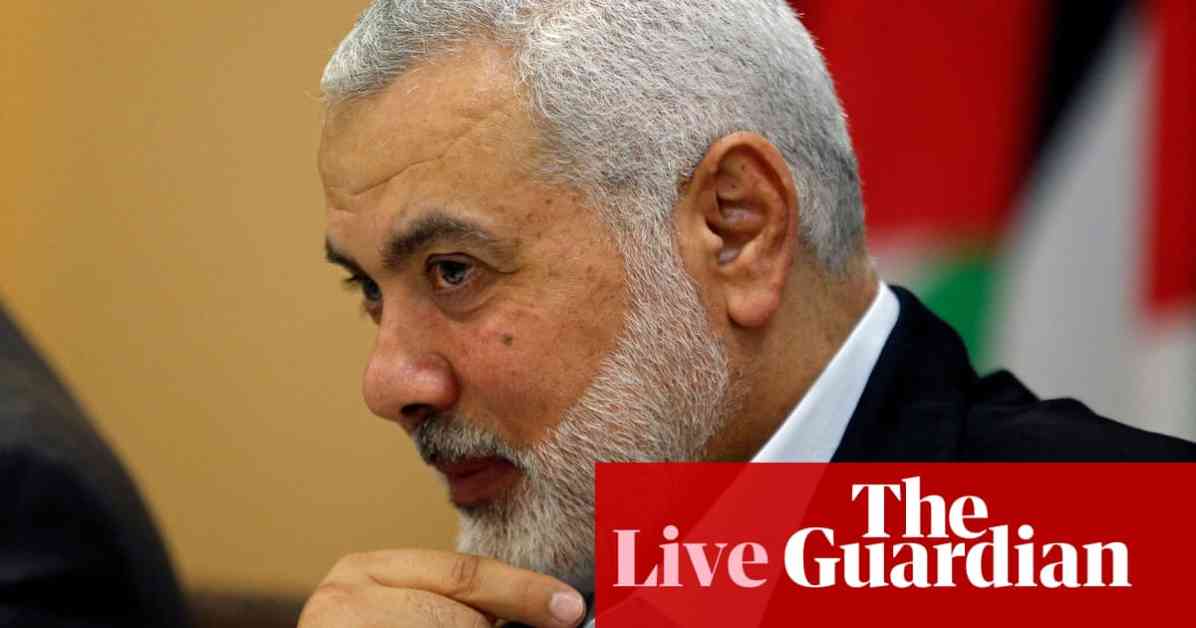Hamas leader Ismail Haniyeh was tragically killed in Tehran, as confirmed by the Palestinian militant group Hamas. The group mourned his death, attributing it to a “treacherous Zionist raid” on his residence in Tehran. Iran’s Revolutionary Guards stated that Haniyeh was targeted along with an Iranian bodyguard while attending the inauguration of President Masoud Pezeshkian. Israel has not yet commented on the killing.
Haniyeh, known for his role as the exiled political chief of Hamas, was considered a pragmatist and had been involved in ceasefire talks during the Israel-Gaza war. He maintained good relations with various Palestinian factions, including Hamas’s main ally, Iran. Haniyeh’s assassination is seen as a significant escalation, drawing condemnation from Palestinian President Mahmoud Abbas and various other factions.
Meanwhile, Lebanon’s Hezbollah expressed condolences after Haniyeh’s death, without specifically accusing Israel. The situation has raised tensions in the region, especially following Israel’s airstrike targeting Hezbollah’s top military commander, Fuad Shukur, in Beirut.
The killing of Haniyeh has sparked reactions from various countries, with Turkey condemning the attack and accusing Israel of disrupting peace efforts. Iran has vowed to strengthen its bond with Palestine in response to the assassination. The US has reiterated its support for Israel’s defense but stated that a wider war in the Middle East is not inevitable.
The Russian deputy foreign minister has called Haniyeh’s killing an “absolutely unacceptable political assassination” that will further escalate tensions. The Israeli military is conducting a situation assessment, with no changes in home defense policy reported. Additionally, the military successfully intercepted a suspicious aerial target coming from Lebanon.
Overall, the assassination of Ismail Haniyeh has significant implications for the Middle East, potentially impacting ceasefire efforts in Gaza and escalating tensions between Israel, Hezbollah, and Iran. The situation remains fluid, with ongoing investigations and responses from various stakeholders shaping the regional landscape.












